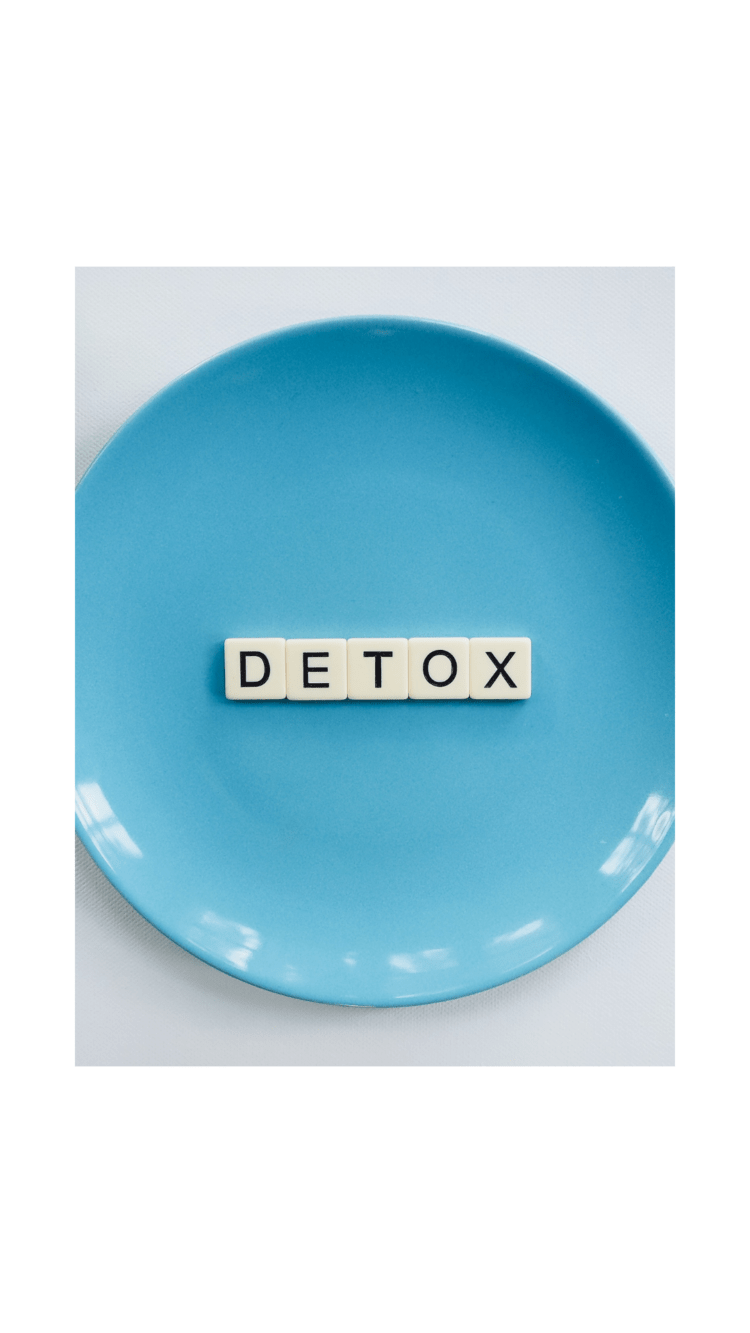Detoxification isn’t all about juices and cleanses.
Your body naturally detoxifies the chemicals and toxins that you are exposed to, as well as eliminating waste products from biochemical processes and from what you eat and drink.
This happens without you even having to think about it.
Your liver is the main organ responsible for detoxification but your kidneys, your gut, your lymphatic system and your skin are also involved.
Whilst detoxification happens automatically, in today’s world you may be exposed to thousands of harmful chemicals every day.
An increased ‘toxic load’ can overburden the liver and other organs. This can cause issues with weight loss, digestion, absorption of nutrients, and blood sugar balance issues.
Symptoms of compromised detoxification can include:
- Headaches
- Night sweats
- Brain fog and cognitive issues
- Fatigue
- Low mood
- Bloating and constipation
- A strong body odour
- Skin issues – sensitivity, rashes, psoriasis
- Adverse reactions to foods and drinks or sensitivity to smells
It is estimated that in the Western world, women put around 168 chemicals on their bodies every day…
This is in addition to exposure to chemicals and toxins from home cleaning products and fragrances, candles, plastic food wraps, plastic containers, non-stick pans, food cans, pollution, and pesticides and herbicides from the (non-organic) food we eat.
The cosmetics and beauty products that you put directly on your skin are absorbed directly into your body.
Here are just some of these chemicals:
- Sodium lauryl sulphate (SLS) – found in body wash, soaps, shampoo and conditioner
- Parabens – found in make-up, hair care products, moisturisers, fake tan products and shaving creams
- Phthalates – found in perfumes
- Aluminium chloride – found in antiperspirant deodorants
- Octinoxate – Found in skin care products, nail polish, hair dye and sun cream
Why this matters
Many of these toxins are absorbed into the fat cells in our bodies and brains, and some have been linked to an increased risk of neurological conditions, mind and mood issues including depression and weight gain.
Some chemicals are labelled as Endocrine Disrupting Chemicals (EDCs). This means that they have the ability to disrupt your hormones and increase the risk of diseases such as type 2 diabetes, obesity, heart disease, cancers, and thyroid function.
Exposure to chemicals and toxins can also add extra stress to your body.
A sub-group of these EDCs is known as ‘obesogens’. These toxins are stored within the fat cells of your body. Your body will do all it can to prevent you from being exposed to these harmful chemicals by blocking weight (fat) loss.
If you are able to lose weight, once these toxins are released into the body they can cause fatigue, joint pain, headaches and flu-like symptoms. They can also damage your cells and change the expression of your DNA i.e. increase your risk of disease.
Another common chemical we are exposed to is Bisphenol A (BPA). This is found in plastic water bottles, plastic food wraps and containers, till receipts and on the inside of tins of canned foods that can disrupt hormones. Foods that are high in acidity such as tinned tomatoes, can cause the BPA to contaminate the food.
8 ways you can reduce your toxic load
- Use an app like ‘Think Dirty’ to check for chemicals in your beauty products. Switch to products that use natural fragrances and avoid nail polish that includes formaldehyde.
- Switch to organic and wild foods or wash all non-organic fruit and vegetables in water with a small amount of vinegar or lemon juice
- Drink plenty of water (around 2 litres per day). Use a water filter and avoid plastic water bottles if possible. Never drink from a warm plastic water bottle as the chemicals can leach into the water.
- Check the latest ‘Dirty Dozen’(most sprayed foods) and ‘Clean 15’
- Eat foods, herbs and spices that support your liver and the detoxification pathways in your body – green leafy vegetables (cabbages, broccoli, kale, Brussels sprouts, rocket, watercress, bok choy), garlic, onions, asparagus, beetroot, artichokes, radishes, chicory, fermented foods (kimchi, kefir, sauerkraut, miso, live yoghurt), rosemary, ginger, turmeric, parsley.
- Choose lean meats over fattier types as toxins are often stored in fat
- Use BPA-free canned foods and bottles and avoid plastic food wrap and containers
- Replace non-stick pans with stainless steel or cast iron.
Want to know what to eat during perimenopause? Get my meal plan and food guide for women over forty here
